Ant invasions are common during the rainy or summer season. Their colonies may go unnoticed at the earlier stages of infestation, but the larger colonies of ants can cause serious problems.
Natural Ant Repellents
Unlike synthetic ant repellents, natural ant repellents do not contain toxic chemicals that can harm your pets and children. Some ant repellents not only help to deter ants’ invasion but also work as natural insecticides.
1. Essential Oils
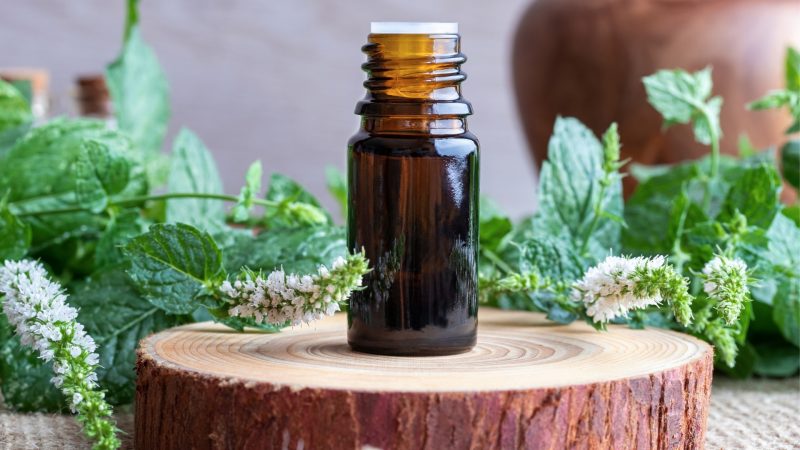
These oils contain aromatic compounds that disrupt ants’ pheromone trails and prevent them from infesting your house.
Cinnamon Oil
The essential oil of cinnamon leaf contains cinnamaldehyde that repels ants and can interfere with the communication channels of ants.
How to Use – You can sprinkle ground cinnamon bark at the baseboards, around doors, windows, cracks, and other openings. Prepare the cinnamon insecticide spray by mixing a few drops of cinnamon in the water. Directly apply this spray on the ant trails, near their access points, and at all the potential nesting sites.
Mint and Peppermint Oil
Mint includes mentha family plants such as peppermint, spearmint, orange mint, etc. The perennial herbs of mint plants are natural ant repellents. They contain the active ingredient menthol, which deters ants. Peppermint has higher menthol content than spearmint and shows better ant deterrence than other mint plants.
How to Use – To prepare peppermint insecticide spray, add 10 drops of peppermint essential oil to a cup of water. Mix it well and use it as a spray.
Citronella Oil
Citronella plant or its essential oil can be used as an insecticide and a natural ant repellent. According to studies, citronella oil can kill around 50% of the ant population in the colony in about 30 minutes and 100% of the ant population in about 24 hours.
How to Use – Saturate cotton balls with citronella essential oil and put them at baseboards, counters, and near access points of ants. Replace the cotton balls when they get dry.
To make a spray, add 20 drops of citronella oil in 1/2 a cup of vegetable oil and mix them. Apply this spray around the ant hills and at the potential nesting sites of ants.
Neem Oil
Neem oil or powder can eradicate or repel ants and other pests such as aphids, mites, moths, flies, mosquitoes, etc. It is an organic and non-toxic way to control pests. Neem does not cause any harm to pets and other mammals.
Cloves Oil
The essential oil of cloves contains the active ingredient eugenol, which is detrimental to ants and other insects.
How to Use – You can sprinkle ground clove leaves in the infested area to repel ants. To prepare clove bud spray based on its essential oil, mix a few drops of clove bud oil in water.
Orange Peels Oil
Orange and other citrus fruits contain essential oils and act as natural ant repellents.
How to Use – To prepare an orange peel solution, blend peels from one orange in one cup of water until they are finely mixed. Pour the solution directly on the ant hills or at the ants’ entry points.
Lavender Oil
Due to the pungent smell Lavender deters ants, flies, moths, mosquitoes, and several other pests.
How to Use – Soak the cotton balls in lavender essential oil and put them on the baseboards, inside the pantry, and at the entry points. To make the lavender oil spray, mix a few drops of lavender essential oil in water and apply the spray at all the windowsills, door frames, and other entryways.
Eucalyptus Oil
Like other essential oils, eucalyptus also has a powerful smell that interferes with the navigation system of ants and keeps them away. It is considered to be a non-toxic and eco-friendly bio-pesticide.
How to Use – Wipe the access point of ants with eucalyptus essential oil to deter ants from entering your house. To make the eucalyptus oil ant-repellent spray, add 1/4 teaspoon of eucalyptus oil to a cup of water and shake it well. You can also add liquid soap (1/2 teaspoon) to the mixture for better results. Apply it directly all over the potential nesting sites and entry points.
2. Liquid Soap
Liquid soap is one of the most effective natural ant repellents. Soap and water solutions can also help to eradicate ants. Mix 1/3 cup of liquid detergent in 2/3 cup water (1:3) and pour the solution into a spray bottle.
You can use this solution to remove pheromones trails of ants. Apply the insecticide directly on the ant mounds and trails. The solution will immediately suffocate the ants to death upon contact and prevent their re-establishment.
3. Chalk or Talcum Powder
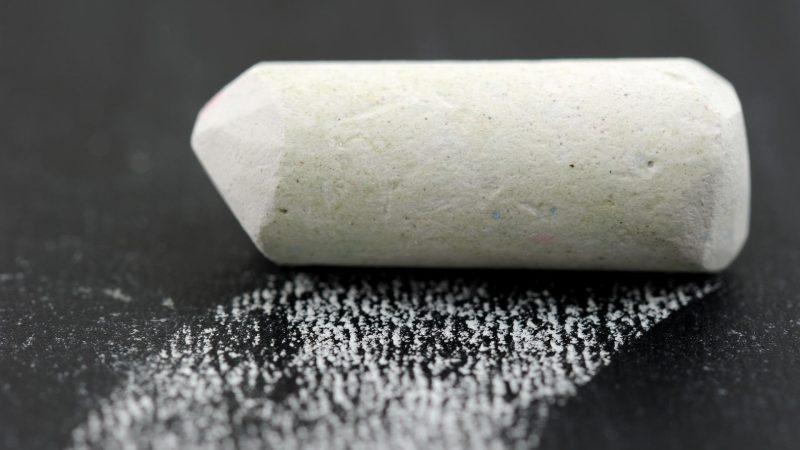
Chalk or talcum powder can also help to repel ants. It is an inexpensive and non-toxic way to keep the ants away. Create a barrier of chalk or talcum powder across the ants’ access points, and you will prevent them from entering your house.
4. Oil of Lemon Eucalyptus (OLE)

The oil of lemon eucalyptus is a natural ant repellent. It contains PMD (para-methane-3,8-diol), a compound that acts as an active ingredient that repels ants. This oil is extracted from the leaves of the eucalyptus tree. It is different from the commonly known eucalyptus essential oil. The primary active ingredient in OLE is PMD, whereas citronella is the major component of the other one.
5. Cayenne Pepper

Ants detest cayenne peppers. Simply just sprinkle it all over the entry points and ant trails. You can make cayenne pepper spray by adding pepper and liquid soap to the water. The solution can be used as an insecticide and a natural ant repellent.
6. Vinegar

The pungent smell of vinegar will erase ant trails and impact their foraging plans. Diluted vinegar’s direct application can help eradicate ant colonies in just a few hours.
How to Use – To make a vinegar spray, add one cup of vinegar to one cup of water (1:1) and pour the solution into a spray bottle. Directly apply this spray at the nesting sites, openings, and access points of ants.
7. Coffee Grounds

This solution is safe to use near cats or dogs. You can also use it in your garden as it is a natural source of minerals like potassium, magnesium, and phosphorous.
How to Use – Sprinkle-brewed coffee grounds at the entry points or around the walls of your house.
8. Cucumber Peels

Ants do not like the bitter smell of cucumber peels. Therefore, we can use them as an ant repellent. Moreover, they are toxic to the fungi that ants consume.
How to Use – Simply put the cucumber peels around the access points of ants.
9. Ginger
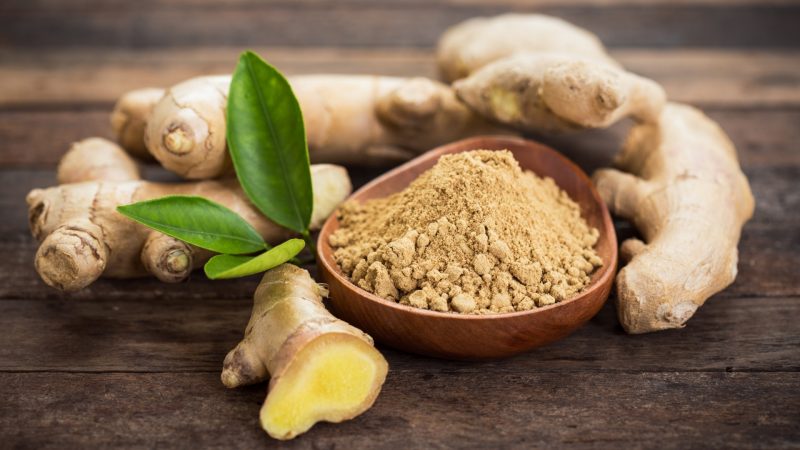
How to Use – Apply ginger on the ant trails. This will make them lose their direction and keep the ants away from your house.
10. Marigolds

You can grow marigolds in your garden or around your house walls to repel any ant invasion—the roots of marigolds release toxic chemicals that kill nematodes and repel some insects.
11. Basil

Other than ants, Basil also repels flies, beetles, and mosquitoes. Simply grow basil plants in your garden. You can also put basil leaves on the kitchen counters near ant trails or cracks.
12. Bay Leaves

Bay leaves contain aromatic chemicals that help to keep the ants away from your house. Put the bay leaves inside your cupboards, containers, or nearby ant trails. They will repel ants and other pests, including fleas, cockroaches, weevils, moths, etc.
13. Onions
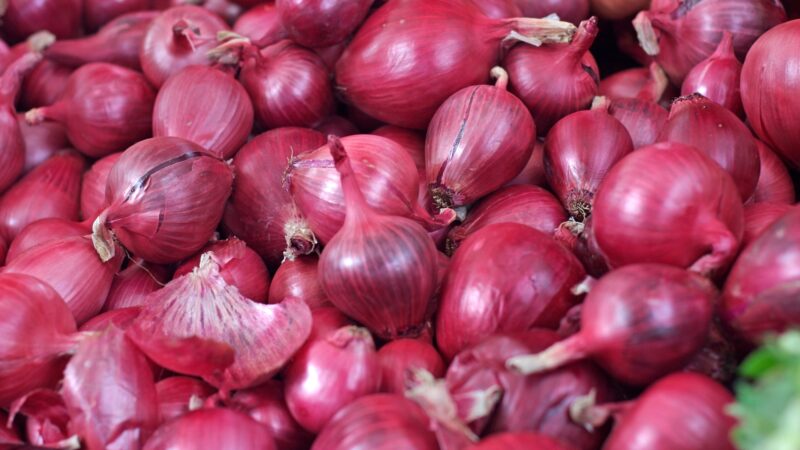
The pungent smell of onion will confuse ants, disturb their pheromone trails, and as a result, prevent them from invading your house.
How to Use – Put a few slices of raw onion near ant trails or at their potential nesting sites.
14. Diatomaceous Earth
- PEST-KILLING DUST: Use indoors or outdoors to control listed...
- NO ODOR, NON-STAINING: Use a hand duster, power duster or squeeze...
- CONTROLS: Kills cockroaches, ants, silverfish, beetles, fleas,...
- WHERE TO USE: Use in enclosed spaces such as apartments, attics,...
- Garden safe diatomaceous earth
- 100% Chemical-Free: Made from 8oz of food-grade freshwater...
- OMRI Listed for Organic Use: Certified by the Organic Materials...
- Puffer Tip Easy Application: Allows precise application in...
- Sourced and Packaged in the USA: Responsibly mined in Nevada and...
- Trusted Brand Since 1928: Harris has been providing effective...
- Natural Product - Composed of 4lbs of 100% ground freshwater...
- OMRI Listed - Listed with the Organic Minerals Research...
- Powder Duster Included - Powder duster in the bag for easy and...
- Supports a Great Cause - Harris donates a portion of profits to...
- Made in the USA – Mined in Nevada and packaged in Georgia
DE made for food use is effective at keeping ants away. Diatoms, aquatic creatures, are petrified remains that were used to make this particular silica. The exoskeletons of ants can be sliced through by their sharp edges, progressively drying out their bodies.
There is no toxicity in diatomaceous earth. It dries out ants and other bugs by absorbing the oils from their exoskeletons. To kill ants, follow the instructions on the container or sprinkle the powder wherever you see them. However, because it is an irritant, avoid breathing it in or getting it on your skin.
15. Boric Acid
- FINALLY, SAFE & EFFECTIVE NATURAL SUPPORT FOR VAGINAL DISCOMFORT!...
- FEEL REFRESHED! These tablets are made with the best ingredients...
- RELIEF THAT PROMOTES A HEALTHY INTIMATE BALANCE! Simply insert 1...
- SATISFACTION GUARANTEE! When it comes to women's health and...
- LEGAL DISCLAIMER - These statements have NOT been evaluated by...
- Long Lasting - Continues to kill roaches, palmetto bugs, water...
- Fast Acting - Insects coming into contact with the powder will...
- Easy Application - The puffer bottle makes application quick and...
- Contains Irresistible Lure - Harris food grade lure attracts...
- EPA Registered - Made in the USA & Registered with the...
- Half Lb (1/2 Pound) Pure Granular Boric Acid (H3BO3) 99.9+%...
- Also called: Orthoboric Acid, Acidum Boricum, Boracic Acid
- Flame Retardant
This technique includes mixing equal volumes of water and a boric acid powder with sweet foods. To allow the boric acid to do its job, spread this paste out in the open close to the ant infestation.
Ants are drawn to the boric acid and sweet chemical mixture used to entice them to the trap. Boric acid will kill the ants by harming their neurological and digestive systems.
16. Cornstarch
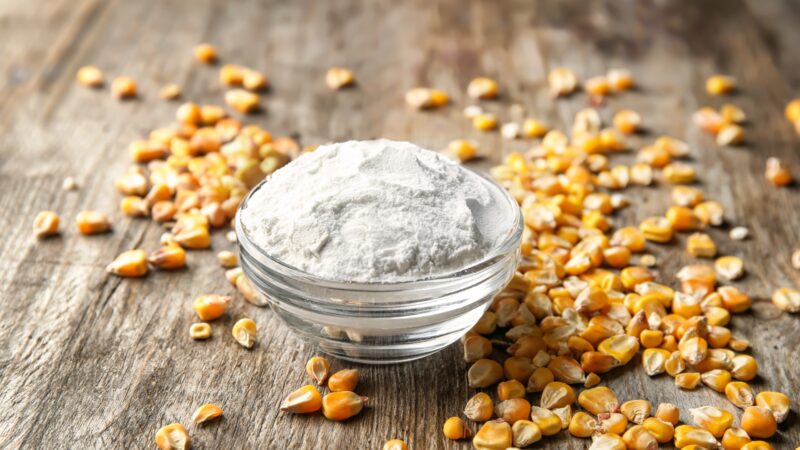
You can freely sprinkle cornstarch and water over the entire colony of ants. You can then clear up the countless dead ants that are then covered in cornstarch as a result.
Additionally, you could sprinkle cornstarch on the ants before vacuuming them up. Just make sure to toss out the sealed vacuum bag right away.
17. Boiling Water
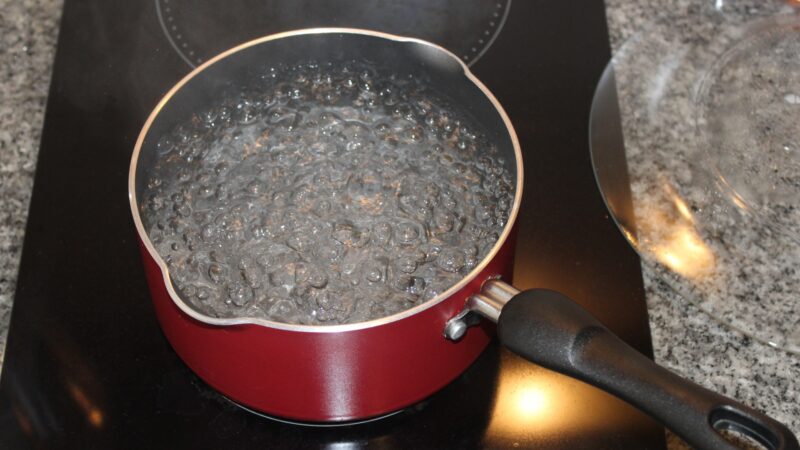
Pour hot water into any ant holes you see close to your house. Many of the ants within will be efficiently and instantly killed by this technique. Even though anthills have a tiny appearance, they conceal enormous ant colonies.
Garden Plants That Repel Ants
Many plants act as a natural ant repellent and keep the ants away from your house. As ants communicate through pheromone trails, the strong scent of plants disrupts their pheromone trails and repels them.
Some ant-repellent plants are sage, tansy, peppermint, lavender, eucalyptus, rosemary, garlic, yarrow, thyme, pennyroyal, catnip, etc. For outdoor ant control, you can grow these plants on your garden’s borders. Or put their pots at the entry points of your house to control indoor ants.
Related: Are Ants the Smartest Insect? | It depends!
Commercial All Natural Ant Repellents
You can also purchase all-natural ant repellents commercially. Some of the best natural insecticides and repellents are the following:
Orange Guard 101
- Repels Insects, Bugs, Ants, Roaches, Fleas, Palmettos and...
- 100% Natural - Pet and Family Friendly
- Active Ingredient D-Limonene 5.8% (Orange Peel Extract)
- Indoor and Outdoor Use
- Eco-Friendly and Biodegradable
Orange Guard is a natural pest killer. The active ingredient is called d-Limonene (extracted from the orange peel). It does not contain toxic or harmful chemicals and can be used for indoor and outdoor ant control.
All-Natural Ant Repellent
No products found.
All-Natural Ant Repellent is a DEET-free eco-friendly spray. You can use it to treat both indoor and outdoor ant infestations. It contains essential oils of cedarwood, cinnamon, clove, and geranium. This ant repellent is safe to use around children.
HARRIS New Ant Spray
- Eco Friendly - Uses clove and cottonseed natural plant oils as...
- Quick Kill - Proven to kill ants in 30 minutes or less
- Non Staining - Formula will not stain when used according to...
- Indoor & Outdoor Use - Can be used as an outdoor perimeter...
- Pleasant Scent - Essential oils emit a pleasant, light odor...
HARRIS New Ant Spray is an eco-friendly plant oil-based spray. It has a non-toxic formula and uses active ingredients such as cottonseed oil and clove oil. This plant-derived spray can kill ants in 30 minutes.
Eco-Raider Ant Killer
- 【Dual-Function Kills & Repels】:This dual-action plant based...
- 【One Spray & You don’t See Them Again】:Spray on active...
- 【Proven by Published University Studies】:EcoVenger...
- 【Natural & Non-Toxic but Highly Efficacious】:Contains no...
- 【Your Safety is Our Priority】:EcoVenger goes through strict...
Eco-Raider Ant Killer is a natural, non-toxic, bio-insecticide. It kills ants in around one minute and removes the ant trails. This product can prevent re-infestation for up to 4 weeks or longer. It is safe to use around kids and pets.
Raid & Roach Killer
Raid and Roach Killer is safe to use around children and pets. This is an all-natural ant killer, but primarily for indoor use. This spray is effective against more than 20 different household pests. The active ingredients used in the spray are lemongrass and pine tree extract.
Related: Best Natural Ant Sprays | Kids and Pet-Friendly Sprays
List of Sources
Cheng, S.S., Liu, J.Y., Lin, C.Y., Hsui, Y.R., Lu, M.C., Wu, W.J. and Chang, S.T., (2008). Terminating red imported fire ants using Cinnamomum osmophloeum leaf essential oil. Bioresource Technology, 99(4), pp.889-893.
Baker B. P., Grant J. A., and Raksha Malakar-Kuenen., (2018). Peppermint & Peppermint Oil Profile Active Ingredient Eligible for Minimum Risk Pesticide Use. Cornell Cooperative Extension. New York State Integrated Pest Management, Cornell University, Geneva NY.
Baker B. P., Grant J. A., and Raksha Malakar-Kuenen., (2018). Citronella & Citronella Oil Profile Active Ingredient Eligible for Minimum Risk Pesticide Use. Cornell Cooperative Extension. New York State Integrated Pest Management, Cornell University, Geneva NY.
Aflitto N. and DeGomez T., (2015). Sonic Pest Repellents. College of Agricultural and Life Sciences, The University Arizona Cooperative Extension.
- How to Get Rid of Copperheads | Practical Guide - August 27, 2023
- How to Get Rid of Corn Snakes | What Makes Them Aggressive? - August 27, 2023
- How to Get Rid of Alligators | Safety Measures and Removal Methods - July 16, 2023











